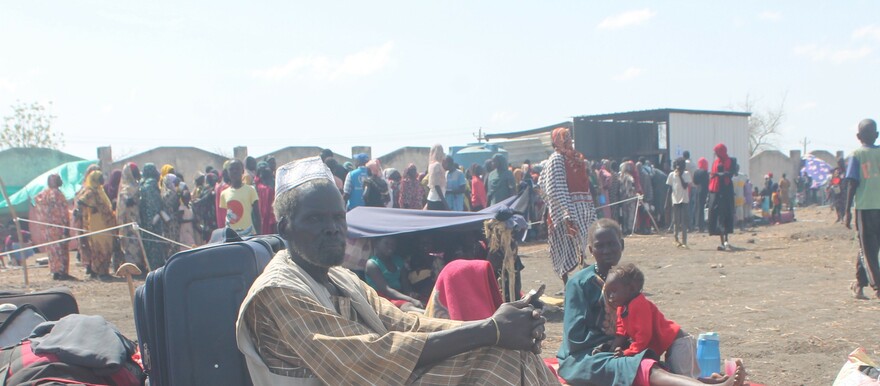The United Nations and aid agencies in South Sudan on Thursday appealed for 96 million US dollars to assist people fleeing conflict in Sudan across the border into South Sudan.
Since the outbreak of the fighting on 15 April, over 32,500 people have been registered crossing the border from Sudan into South Sudan, according to official reports.
The real numbers are likely to be higher as some people entered the country without registration, with the average number of people arriving daily recorded at 3,500 individuals. Most people are arriving at the Joda border crossing point in Upper Nile State, having spent days on the road from Khartoum.
Most of those arriving are South Sudanese returning home as well as Sudanese seeking asylum, Eritrean refugees, Kenyan and Somali migrants, and other third-country nationals.
Peter Van der Auweraert, humanitarian coordinator ad interim in South Sudan, said the UN and humanitarian partners aim to provide rapid assistance to those arriving and support the government of South Sudan’s efforts to help people move from the border as quickly as possible to avoid people remaining in hard-to-reach and possibly unsafe areas.
“The majority of those arriving, often with no belongings and very traumatized, are in dire need of immediate humanitarian assistance, including medical and psychosocial support, and transportation to their destination,” Auweraert said in a joint statement issued by UN and humanitarian agencies in Juba.
According to the joint statement, a potential 180,000 South Sudanese are likely to return in the next 3 months and 10,000 third-country nationals are expected to transit through South Sudan; while 60,000 refugees are expected to arrive in the next 6 months if the conflict and tensions persist.
The statement says 39.9 million US dollars of the total funding required will go to assist returning South Sudanese at the border as they move onward to their communities, while 53.9 million dollars will be used to provide basic services to refugees in designated camps for six months.
In addition, it notes that a further 2.2 million dollars is required to support third-country nationals with transportation assistance to their countries of origin.
Auweraert said the money that they are appealing for under the emergency response plan (ERP) will help speed up the provision of rapid assistance to those arriving.
“If we do not act now, there is a high risk that vulnerable families will be stranded in inhospitable border areas for the duration of the rainy season, which will increase their suffering and the costs of providing assistance,” he said.
Auweraert commended the government of South Sudan for continuing to keep their borders open to those fleeing Sudan, and also for the strong and collaborative working relationship with UN system members and partners to provide the necessary assistance and protection, and help people return to their countries of origin.
“We urge that sustainable solutions are found for these people and all those in South Sudan who deserve solutions pathways,” Auweraert said.




